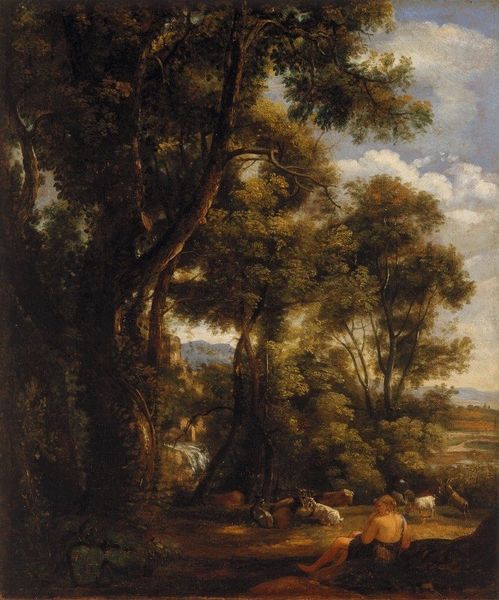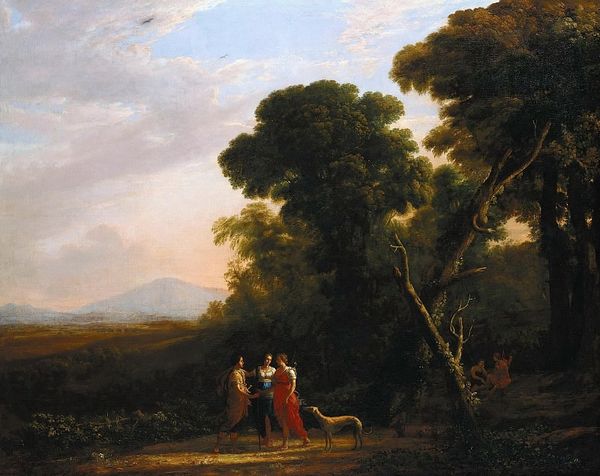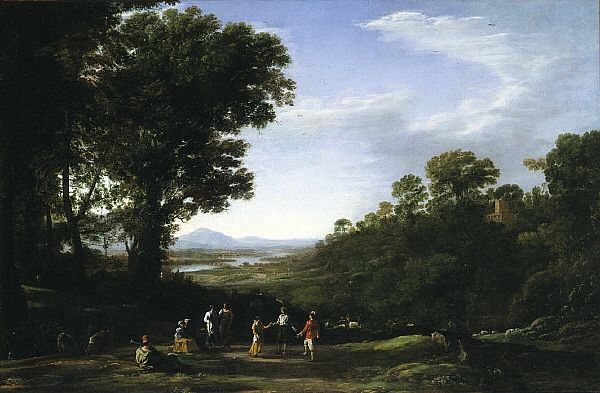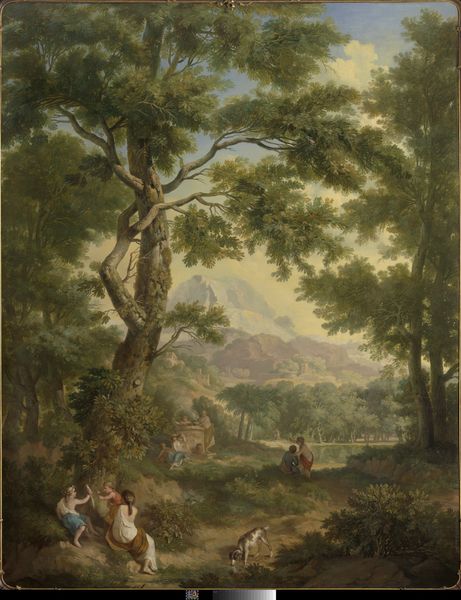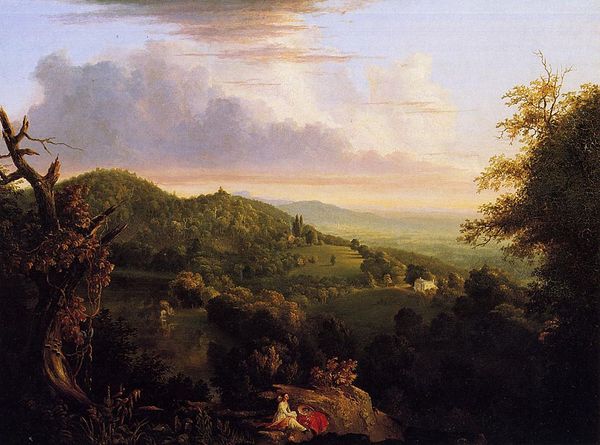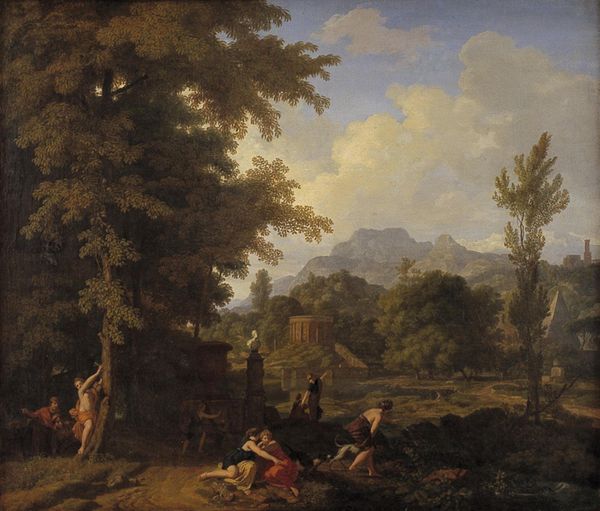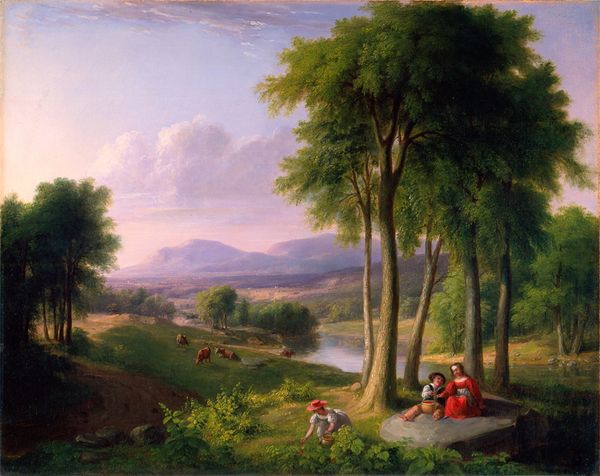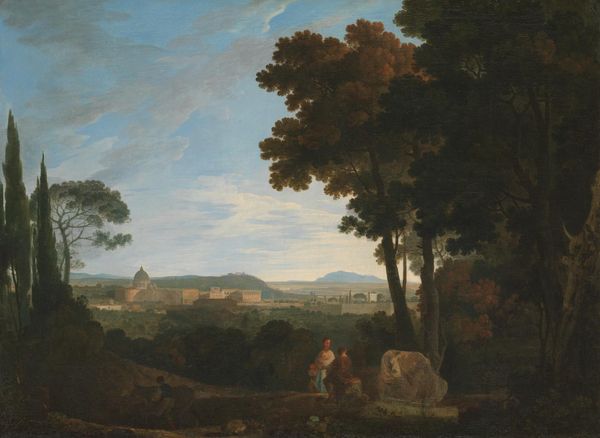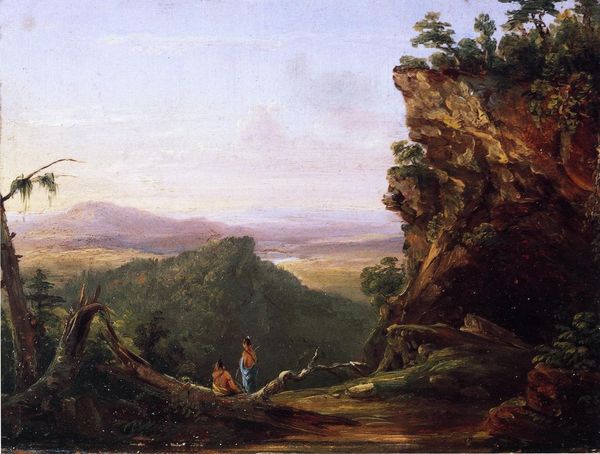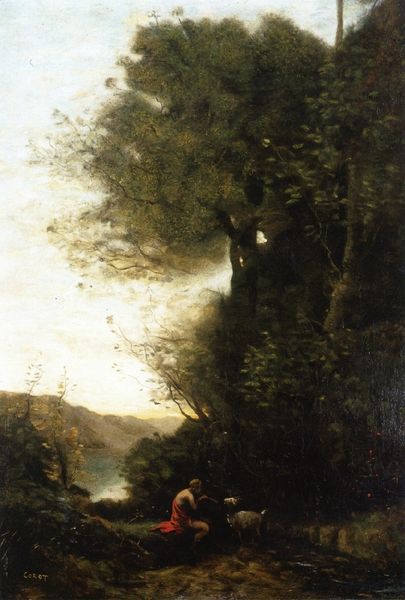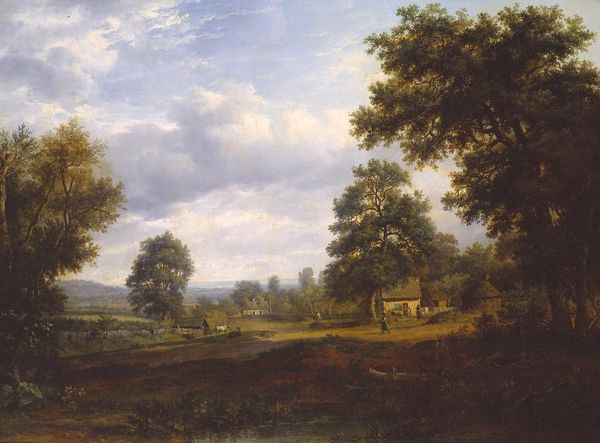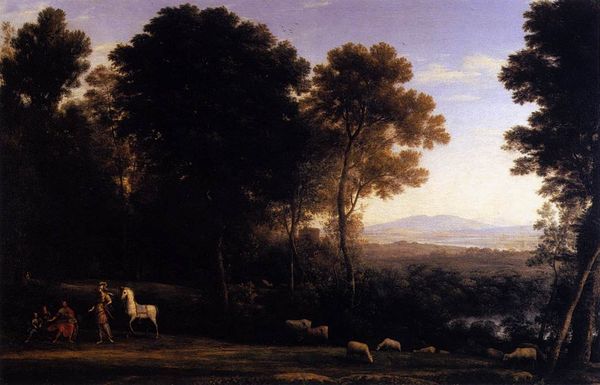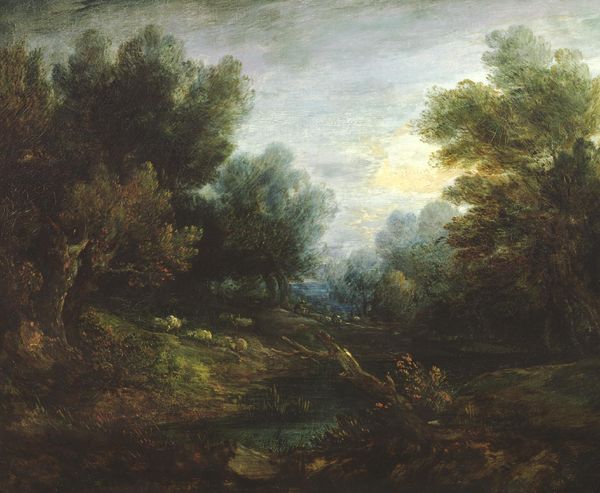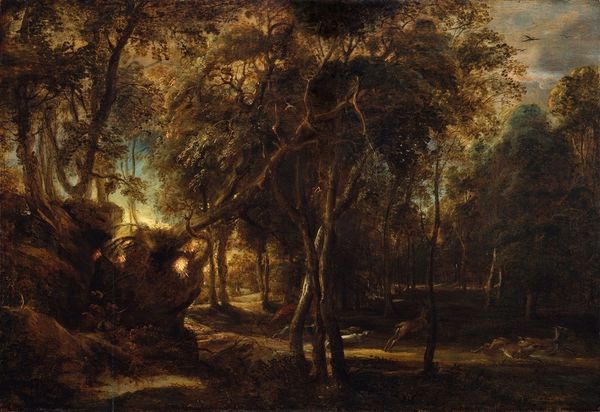
#
tree
#
sky
#
charcoal drawing
#
possibly oil pastel
#
oil painting
#
neo expressionist
#
acrylic on canvas
#
underpainting
#
surrealism
#
painting painterly
#
surrealist
#
watercolor
Copyright: Public domain
Editor: This is "Latona and the Lycian Peasants" by Adam Elsheimer, painted in 1608. It seems to be done in oil. I'm immediately struck by how the figures are almost hidden within this otherwise serene landscape. How do you interpret this work? Curator: This painting speaks volumes about power dynamics. Elsheimer depicts a scene from Ovid's *Metamorphoses*, where Latona, mother of Apollo and Diana, is denied water by Lycian peasants and subsequently transforms them into frogs. The peasants' cruelty reflects societal biases against outsiders and those deemed 'different.' Consider how access to resources, like water, becomes a tool for oppression. Editor: That’s interesting! So, the transformation into frogs is not just a fantastical element, but a commentary on justice and retribution for the marginalized? Curator: Precisely. Elsheimer uses this mythological tale to reflect on social injustices. The lush landscape, ironically, highlights the contrast between nature's bounty and humanity's capacity for spite. Where do you see elements of critique in Elsheimer's artistic choices, for example in his use of light and shadow? Editor: The dark shadows around the figures makes them feel trapped within the scene, reinforcing this sense of being excluded from the more vibrant landscape in the background. The light almost seems to highlight the landscape as if it shines on everything they can't be a part of. Curator: Excellent observation. And notice how Latona, despite her divine status, is shown as vulnerable, pleading. This challenges the traditional heroic representation, and invites us to sympathize with the disempowered. This small painting really forces us to confront the biases woven into the fabric of our own societies. Editor: I hadn't considered how the painting reframes power and victimhood. I definitely have a new appreciation for how historical narratives can address modern inequalities. Curator: Exactly. And art like this serves as a reminder to question the narratives we inherit and advocate for a more just and equitable world.
Comments
No comments
Be the first to comment and join the conversation on the ultimate creative platform.
